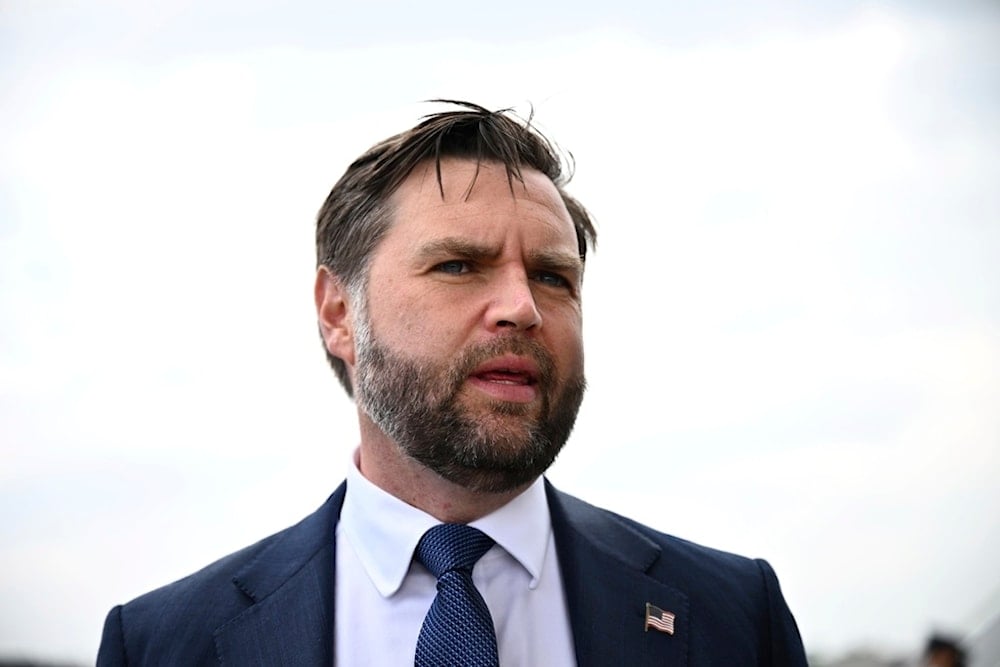Vance backs deadly strike on 'cartel' boat, rejects war crime claims
US Vice President JD Vance defended what the US is saying was a deadly naval strike on a Venezuelan-linked vessel, dismissing war crime accusations as Trump's "war on drugs" escalates toward possible strikes inside Venezuela.
-

US Vice President JD Vance speaks to reporters at Minneapolis-Saint Paul International Airport after paying his respects to victims of the Annunciation Catholic Church shooting in Minneapolis, Wednesday, September 3, 2025. (Alex Wroblewski/Pool via AP)
US Vice President JD Vance has forcefully rejected accusations that a recent naval operation in the Caribbean amounted to a war crime.
Earlier this week, US forces reportedly sank a vessel in international waters, killing 11 people. President Donald Trump described the target as a "drug-carrying boat" linked to Venezuela's Tren de Aragua cartel, which his administration has formally designated a terrorist group. Venezuelan authorities ridiculed the incident, dismissing the released footage as "cartoonish."
Vance openly praised the operation on X, declaring that "killing cartel members who poison our fellow citizens is the highest and best use of our military." His remarks drew sharp criticism online, including from social media commentator Brian Krassenstein, who argued that "killing the citizens of another nation who are civilians without any due process is called a war crime." Vance's blunt retort was: "I don't give a s**t what you call it."
The exchange deepened partisan divides. While many Trump supporters rallied behind the vice president, Senator Rand Paul denounced his comments as "despicable and thoughtless."
Militarized 'war on drugs'
The strike came weeks after the deployment of a US naval armada to the western Caribbean as part of Trump's expanded anti-narcotics push. The move reflects a broader evolution of the decades-old US "war on drugs," first declared by Richard Nixon in 1971, which has traditionally relied on law enforcement and incarceration but has increasingly expanded into overseas military operations. Critics argue that decades of punitive measures have failed to curb drug flows while destabilizing parts of Latin America.
Venezuela has long been a flashpoint in this campaign. In 2020, Washington accused President Nicolás Maduro of leading the so-called Cartel de los Soles, allegations he rejected as an US plot for regime change in the country. More recently, the administration designated the Tren de Aragua, a sprawling Venezuelan criminal network, as a foreign terrorist organization, opening the door to the use of military force against its members.
CNN reported that Trump is now considering extending these tactics further by authorizing strikes inside Venezuela itself. The president has denied regime change ambitions but characterized the country's 2024 election as "very strange," fueling speculation about broader US intentions.
Read more: Maduro warns of armed struggle as Venezuelan jets challenge US ship
Observers warn that the decision to treat cartels as terrorist groups marks a dramatic escalation with far-reaching consequences for international law, sovereignty, and the future of US-Latin America relations.

 3 Min Read
3 Min Read









